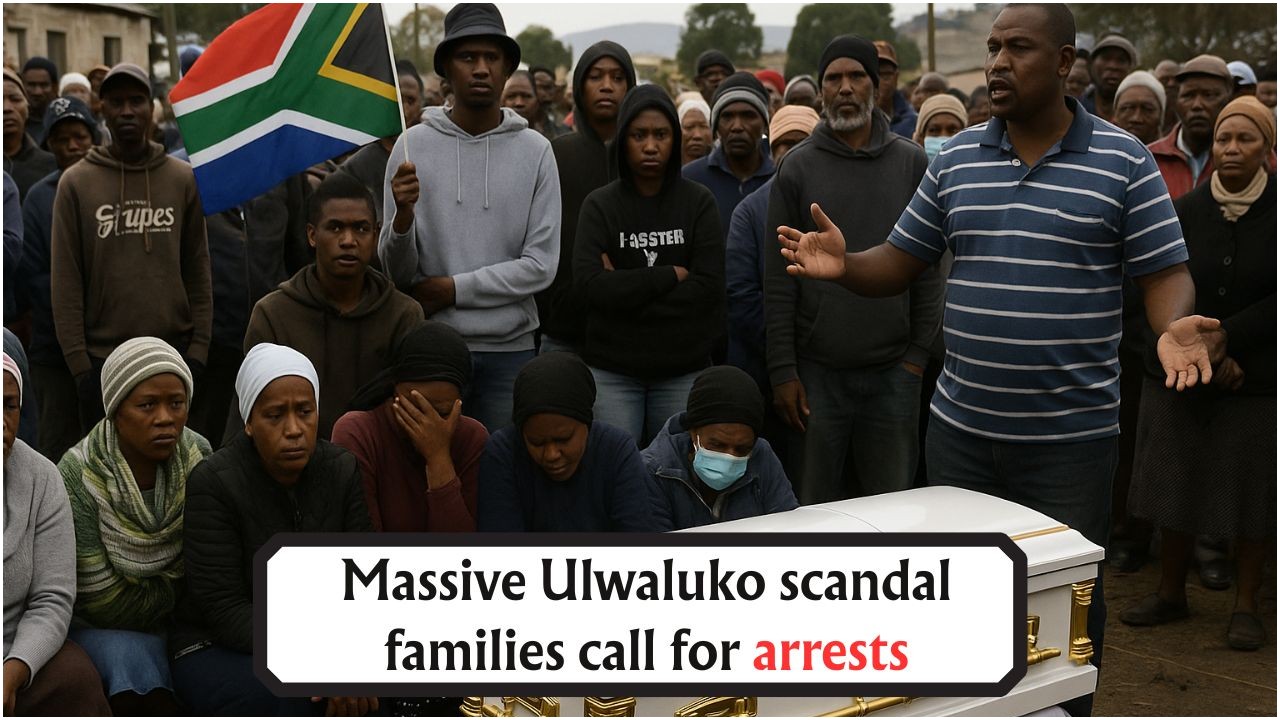Tragedy Strikes Ulwaluko Ceremony: A deep sense of sorrow has enveloped South Africa as the nation mourns the loss of 39 young lives during the Ulwaluko ceremony. This traditional rite of passage, integral to the Xhosa community, has once again cast a shadow of tragedy, sparking intense calls for accountability and reform. The ceremony, intended to transition young boys into manhood, has been marred by safety lapses and inadequate medical oversight, leading to preventable fatalities. As the country grapples with this devastating event, many are questioning the preparedness and regulation of these rites, demanding immediate action to prevent further loss of life.
Understanding Ulwaluko: A Rite of Passage
The Ulwaluko ceremony holds profound cultural significance within the Xhosa community, symbolizing the transition of boys into adulthood. Traditionally, this rite involves a period of isolation, education, and circumcision, intended to instill values of responsibility and resilience. However, the ceremony has been fraught with challenges, particularly concerning health and safety. Critics argue that the lack of proper medical supervision and the clandestine nature of the rites contribute to the high mortality rate. Moreover, traditional surgeons, often unlicensed, perform circumcisions, leading to complications such as infections, dehydration, and even death. As these tragedies continue to unfold, voices from within the community and beyond are calling for a re-evaluation of the practices surrounding Ulwaluko to ensure the safety and well-being of initiates.
| Year | Deaths | Injuries | Regions Affected |
|---|---|---|---|
| 2020 | 25 | 40 | Eastern Cape, Limpopo |
| 2021 | 30 | 35 | Eastern Cape, Mpumalanga |
| 2022 | 34 | 45 | Eastern Cape, Gauteng |
| 2023 | 39 | 50 | Eastern Cape, KwaZulu-Natal |
Calls for Accountability and Reform Intensify
The recent fatalities have prompted an outcry from various quarters, urging for stringent measures to safeguard the lives of young initiates. Community leaders, government officials, and civil society organizations are advocating for a comprehensive review of the Ulwaluko practices. Some of the primary demands include:
- Mandatory medical checks for all initiates before the ceremony.
- Certification and training of traditional surgeons.
- Government oversight to ensure compliance with health regulations.
- Community engagement to foster awareness of safe practices.
These measures aim to balance cultural preservation with modern health standards, ensuring that the rites continue without compromising the safety of participants.
 Rand Plummets to R18.23: Brace for Impact on Salaries, Transport, and Essentials This August
Rand Plummets to R18.23: Brace for Impact on Salaries, Transport, and Essentials This August
The Role of Government and Traditional Leaders
In response to the tragedy, South Africa’s government has pledged to work hand in hand with traditional leaders to address the issues plaguing the Ulwaluko ceremony. This collaborative approach is crucial to implementing sustainable changes that respect cultural traditions while prioritizing the health of initiates. Key areas of focus include:
- Developing a regulatory framework for traditional surgeons.
- Enhancing public health infrastructure in rural areas.
- Promoting education programs about the risks and responsibilities involved.
- Facilitating dialogue between all stakeholders to foster mutual understanding.
Through these initiatives, the government and traditional authorities aim to prevent further tragedies and honor the cultural heritage embodied in the Ulwaluko ceremony.
Voices of the Community: A Plea for Change
Amidst the calls for reform, the voices of grieving families and community members resonate with a powerful plea for change. Many emphasize the need for transparency and openness in addressing the challenges associated with Ulwaluko. As the nation mourns the loss of these young lives, there is a growing consensus that:
- Dialogue and education are pivotal in transforming the ceremony.
- Community involvement is essential in implementing effective reforms.
- Preserving cultural identity should not come at the cost of lives.
- Innovative solutions are required to bridge cultural and modern practices.
Educational Initiatives in the Wake of Tragedy
The aftermath of the recent tragedy has sparked several educational initiatives aimed at raising awareness about safe practices surrounding the Ulwaluko ceremony. These initiatives focus on:
- Conducting workshops to educate communities about the risks involved.
- Engaging youth to understand their perspectives and concerns.
- Collaborating with healthcare professionals to provide accurate information.
- Utilizing media platforms to disseminate knowledge and foster dialogue.
Future Prospects: Ensuring Safety and Respect
As South Africa navigates the complexities of cultural traditions and modern-day safety requirements, the future of the Ulwaluko ceremony hangs in the balance. The path forward requires a delicate balance of respecting cultural heritage while ensuring the safety and wellbeing of young initiates. Moving ahead, the focus will be on:
 Eskom Announces August 1 Rate Increase – Discover Your Province's New Electricity Tariffs!
Eskom Announces August 1 Rate Increase – Discover Your Province's New Electricity Tariffs!
- Implementing comprehensive safety protocols.
- Fostering community participation in reform processes.
- Building trust between traditional leaders and government authorities.
- Ensuring accountability and transparency in the conduct of ceremonies.
Table of Comparative Statistics
Recent statistics highlight the urgency for reform in the Ulwaluko ceremony:
| Region | Deaths (2023) | Injuries (2023) | Preventive Measures Proposed |
|---|---|---|---|
| Eastern Cape | 20 | 25 | Medical oversight, certified surgeons |
| KwaZulu-Natal | 10 | 15 | Community engagement, education |
| Limpopo | 5 | 7 | Regulatory framework, health infrastructure |
| Mpumalanga | 4 | 3 | Workshops, media awareness |
FAQ Section
What is the Ulwaluko ceremony?
The Ulwaluko ceremony is a traditional rite of passage for Xhosa boys, marking their transition into manhood through rituals that include circumcision.
Why have there been fatalities at the Ulwaluko ceremony?
Fatalities often occur due to infections, dehydration, and inadequate medical oversight during the ceremony.
What are the proposed reforms for the Ulwaluko ceremony?
Proposed reforms include mandatory medical checks, certification of traditional surgeons, and increased government oversight.
How is the South African government responding to the tragedy?
The government is collaborating with traditional leaders to implement safety measures and regulatory frameworks for the ceremony.
 Eskom Announces August 1 Tariff Increase – Discover Your Province's Updated Electricity Rates Today
Eskom Announces August 1 Tariff Increase – Discover Your Province's Updated Electricity Rates Today
Why is the Ulwaluko ceremony important to the Xhosa community?
The ceremony is an integral cultural tradition that symbolizes the transition from boyhood to adulthood and instills values of responsibility and resilience.







